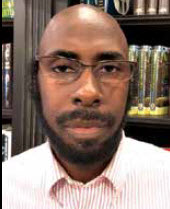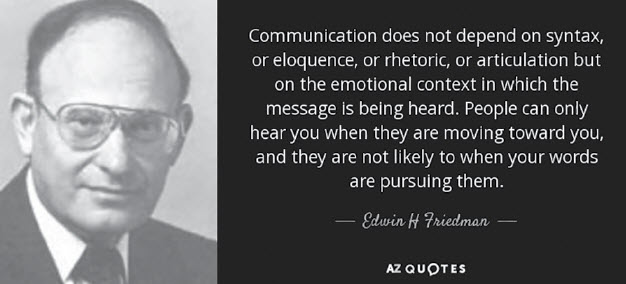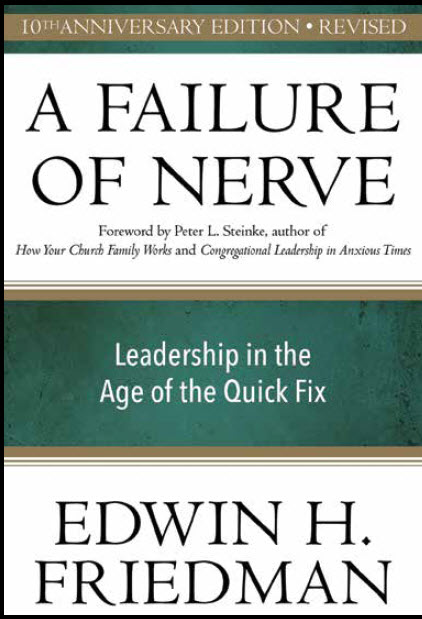Successful Leaders Are Comfortable In Their Own Skin
 By: Eric Betts
By: Eric Betts
Edwin Friedman is widely considered as a leadership expert who for 20 years served as a pulpit rabbi. He is described by Bob Thune as a valuable resource in this field of study. His credentials are listed by Thune as follows: “Friedman served 25 years as an organizational consultant and family therapist in the Washington, DC area. He also served in the Lyndon Johnson administration. His unique experience allowed him to observe leadership – and its problems – in the family, the church, and the political sphere.”

Friedman famously authored an extremely insightful volume entitled, A Failure Of Nerve, published in 2007. “Failure of nerve” refers to a state of mind existing among modern day leaders which caters to their own anxieties and the anxieties of those whom they lead. He points out how society has become more modern, but more anxious and less cerebral. Today’s society is described by Friedman as too fearful and led by the emotions of the larger group, which seeks to avoid confrontation. It is a concept he calls the “herd mindset.” In order for the most effective change-making decisions to occur, leaders must first manage their own anxieties in order to make the most critical changes of this generation. Too many leaders seek to adapt to this anxious atmosphere within the group, rather than making the effort for necessary change. The reason so many leaders are prone to adapt to this environment is because of their own anxieties and that of the group. According to Friedman, a key ingredient that leaders fail to exercise is called “nerve.” The idea of having nerve is an indispensable leadership quality when considering the needs of today’s world. In order to regain this nerve which are so necessary, leaders need to understand the importance of self-differentiation. The term self-differentiation means a well-defined person who is comfortable in their own skin and is not controlled by their own anxieties nor that of the group. The reason so few necessary changes and so little progress happens within a system is because of avoidance strategies and the lack of self-differentiation. The following are qualities of self-differentiated leaders that are needed within a system to navigate a group through crisis and to bring about effective change:
Self-differentiated leaders have core convictions and values that that are indispensable. They do not lay aside these values because they differ with that of others. They don’t change these values in order to adapt to group anxieties and in particular their fear of change.

Self-differentiated leaders are not instinctively reactionary or impulsive but are thoughtful and strategic.
Self-differentiated leaders handle criticism well and are not defensive. They do not lose themselves if they are called self-willed, stubborn, or uncaring.
Self-differentiated leaders are not infected with the emotions or mood of the group. They have a habit of choosing their own mood or state of mind. They are a reassuring, non-anxious presence.
Self-differentiated leaders are capable of balancing their own individuality with the need to remain connected to the larger group as a team member.
Self-differentiated leaders do not need to feel comfortable in order to remain connected within the group.
Self-differentiated leaders are authentic and comfortable in their own skin. They are self-aware and are aware of others and their emotions. They are secure in themselves.
How well-defined or self-differentiated are you? On a scale of one to ten, how self-differentiated are you? Don’t despair if you are low on the scale. For some, these qualities are second nature while others have to grow and develop them. The first step toward growth in this area is to become aware of one’s own weaknesses, anxieties, and strengths. Growth in this mindset of self-differentiation may very well be the work of a lifetime, but the more growth achieved, the better for change and progress within groups, systems, and families. The more risk averse our society becomes, there will be a need for more growth as self-differentiated leaders.
By: Eric Betts
Assistant Director, Curtis Coleman Center for Religious Studies and Ethics at Athens State University